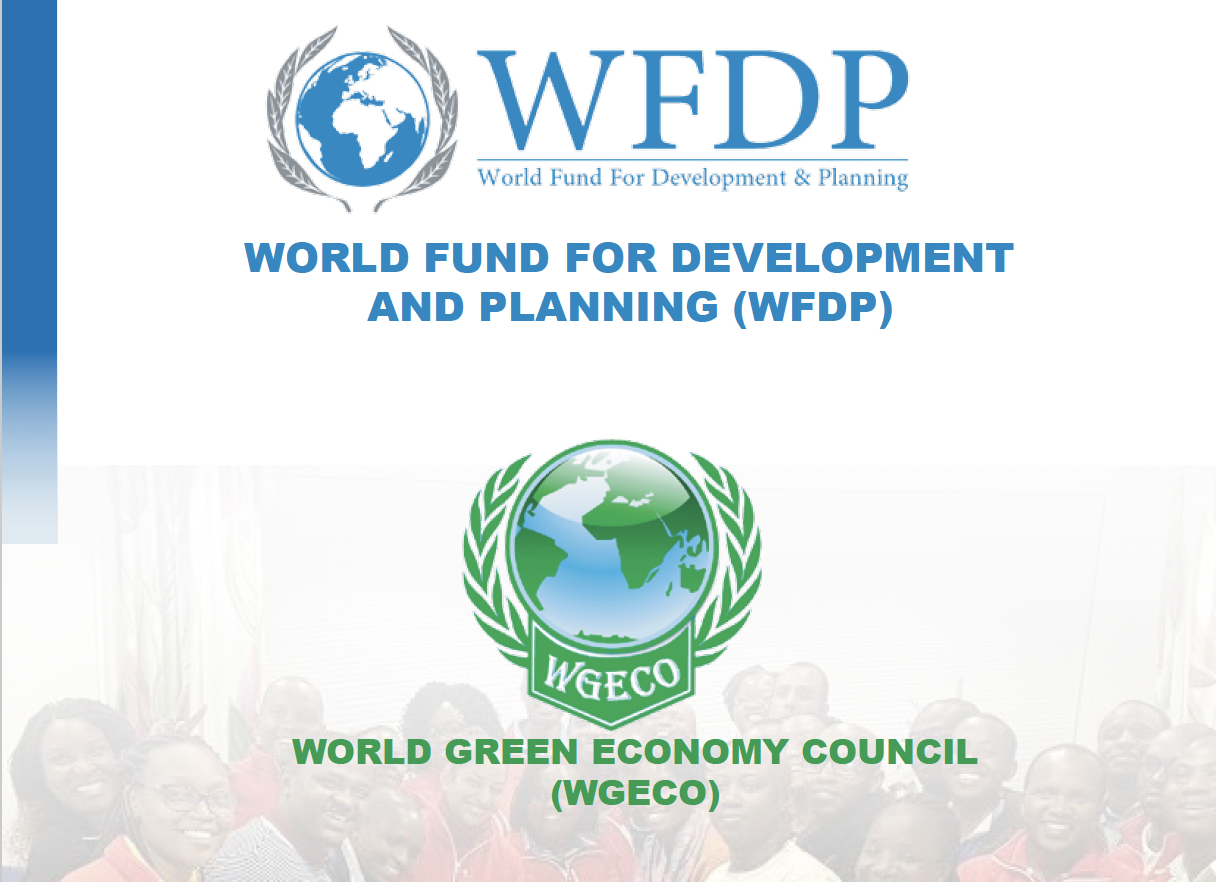
To promote the concepts and principles of the green economy around the world , WFDP President H.E. Amb. Ekramy El Zaghat decided to establish the World Green Economy Council (WGECO) to serve as the world's leading center of superiority for fostering the development of a green economy that produces zero waste and net zero carbon emissions, with the aid of its members globally. WGECO will deploy eight approaches, for implementing Green Zero Waste and Net Zero-Carbon for sustainable development, including carbon sequestration, sustainable water usage, green supply chain management, green real estate, green construction, and green capacity building.
Prof. Dr. Mohamed Gamal Kafafy has been appointed as the Secretary-General of WGECO by WFDP's President . He has an international reputation as an expert with over 30 years of experience; he provides both an academic and practical approach to energy and sustainable development as a senior consultant to several governmental, non-governmental, academic, and private sector organizations worldwide.
WGECO Declaration
The green economy will be prevalent in the twenty-first century. WFDP established the World Green Economy Council (WGECO) to promote the ideas and applications of the green economy globally, as well as to help WGECO partners all over the world in determining the future of the Green Zero Waste and Net Zero-carbon economies. It is a way and an opportunity to create a higher standard of living and quality of life. It also opens up prospects for sophisticated technological research, implementation, and export. Lowering environmental pollution and natural resource consumption can result in improved productivity in the economy. It also creates more business prospects and potential employees.
A system of economic development based on low energy consumption and low pollution, encompassing low or zero-carbon energy, technology, and industry systems, are the fundamental characteristics of green projects. Reducing greenhouse gas emissions is the project's primary objective. Fossil fuel consumption, which accounts for 70% of the world's greenhouse gas emissions and has increased from 4% of total energy consumption in the early 1900s to over 86% lately, is primarily driven by cities. Global challenges like climate change necessitate green economic expansion for the city's future.
The long-term goal of the Paris Agreement was set in 2017 as global carbon disintegration. Unfortunately, African nations consume twice as many resources as their natural systems can substitute and absorb. In response to the post-Paris climate crisis, these countries ought to develop an audacious plan for green cities and a low-carbon economy in order to attain zero-carbon nations.
World Green Economy Council (WGECO) then presented sustainable technologies for Green Zero Waste as a climate change solution. WGECO's mission is to provide eight transformative efforts toward World Green Zero Waste in order to boost Green Gross Domestic Product (GGDP), resource efficiency, productivity, employment, and green living.